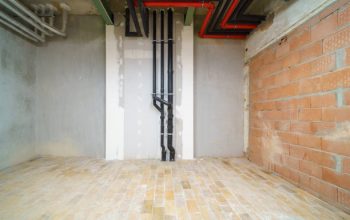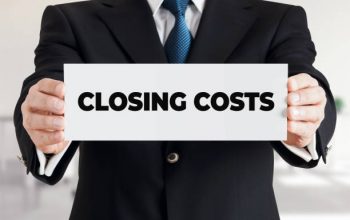The reports state that every day, close to 1000 people make that move. Here are some quick tips for buying a house in Florida, a process that may be very different from what you’ve done in your home state or country.
Table of Contents
Step To Buy A House In Florida
1. Get Your Finances In Order
Lenders heavily rely on your credit report to make their loan-granting decisions. It is an ongoing report that shows how successfully—or unsuccessfully—you are handling your money. Prior to visiting lenders to request a mortgage loan for purchasing a Florida home, you must be aware of your credit score and any potential negative marks on your credit report. It will be more difficult to obtain the financing you require to buy your dream home if you have a lower score or a credit report filled with numerous negative marks. If you anticipate having trouble with the first stage of the home-buying process, it is best to know this in advance. If you haven’t checked your credit reports, there might be blemishes there that you are unaware of, things that could hurt your chances of getting a loan to buy a home in Florida. In a perfect world, there would be no late payments, defaulted credit lines, or prior marks like collections or bankruptcy. These will ruin your credit and your ability to get a mortgage loan.
2. Understanding The Process Of Getting A Loan
Finding the ideal loan and lender is another crucial step in the process of purchasing a home in Florida, but many people neglect to give it the serious consideration it merits. Even though comparing mortgage rates may seem obvious, more than half of homebuyers only take one lender into account. Take the time to compare the mortgage products that are available to you when purchasing a Florida home rather than using a lender that someone you know has recommended, as most homebuyers do. Determine the types of mortgage products for which they are willing to pre-approve you by visiting various banks and/or mortgage brokers. Although a half-percentage-point increase in your mortgage rate might not seem like much, over the course of your loan, it can add up to thousands of dollars. You should shop around and compare prices and rates before buying a mortgage loan, just like you would before buying a car. This will help you find the best deals. When purchasing a Florida home, take the time to compare prices since it is almost never a good idea to accept the first offer you receive.
3. Get Pre-approved For A Mortgage
Do you know how much the house costs that you can afford? Unless you have been speaking with lenders, you probably have no idea what this entails, despite the fact that it is a crucial piece of the puzzle. The process of getting pre-approved for a mortgage loan often confounds new homeowners, who also frequently misunderstand the distinction between being pre-qualified and being pre-approved. The distinction is significant and can have a significant impact on the type of loan you can obtain for the purchase of a Florida home. The difference is actually quite significant. Being pre-qualified for a mortgage loan indicates that you have the necessary qualifications to be approved for one. It does not necessarily imply that you will be given a loan. Your assets, including the amount of money you have available for a down payment when purchasing a Florida home, and your income-to-debt ratio will determine whether you are pre-qualified for a mortgage loan. The lender will assess your financial data and provide you with a rough estimate of the loan amount you might be eligible for. Pre-approval, by contrast, is the next step in the process and requires borrowers to provide to the lender documentation of their income and their assets, which will enable the lender to “verify” their income, assets, creditworthiness, etc. You must give the lender your W2s, paystubs, bank statements, asset statements, and other documentation in order to get pre-approval. A credit check is also performed during this process. You will know exactly how much you can borrow for a home loan once a pre-approval has been given. A major choice is making a Florida home purchase.
4. Determine Your Wants And Needs
There are numerous issues that must be taken into account, resolved, and worked out before the sale of your Florida home can be finalized, which can make the process challenging. If you are familiar with the real estate market you are buying in and have a clear idea of your wants and needs, the process of purchasing a Florida home can go much more smoothly. Before you begin searching for your ideal house, you should make a list of the features you want and don’t want in your new house. It’s important to think about things like the number of bedrooms and bathrooms, the layout and floor plans, the size of the yard, the type of house you want, and other features like a large bathroom, an open kitchen, and a sizable outdoor entertainment area. You should also consider what you don’t want, such as outdated flooring, small bathrooms, etc. You can reduce your options by being prepared.
5. Importance Of Real Estate Agents
Real estate agents are professionals with specialized training who assist in the purchase of the real estate by working with buyers, sellers, or occasionally both parties. One of the most crucial choices you can make when buying a home in Florida is to work with a knowledgeable and experienced realtor. “The average American will spend the majority of their lifetimes saving for a home. Having the right representation is essential because it’s a serious transaction with important financial and emotional repercussions for the parties involved. What will a Realtor do for you, then, and is hiring one really necessary? In 2012, a full 89 percent of buyers used a real estate agent, and so did 88 percent of sellers” (Having a realtor’s expertise and experience by your side throughout this process is crucial, as can be seen from Realtor.com. It may significantly affect how quickly and successfully you are able to purchase a home in Florida.
6. Start Your Search For A Home
There are numerous approaches you can take when looking for a home. When you work with a realtor, they will send you listings in your search area that they believe might be a good fit for your needs and wants. As you explore the neighborhood and its surroundings and look for houses up for sale, you can also conduct your own search. A good way to find out about properties for sale in the area is to ask trusted friends and family members for recommendations. You will then coordinate walkthroughs and tours of the homes with your realtor as you work on making a list of the properties you want to see and are interested in. This gives you the chance to visit the house and assess whether it would be a good fit for your family and you. Your real estate agent can assist you with every step of the Florida home buying process and can also assist you in finding out any information you might need regarding the properties you view.
7. Checking The Comparable Sales Records
You should think about a home’s size, structure, amenities, locations, and a host of other factors before deciding if it is the right one for you. The comparable sales data is one of the other factors that must be taken into account before you decide to buy a Florida house, though. Comparable sales are the prices at which recently sold, identical houses in that neighborhood sold. These records are used as an example to support the asking price made by the seller or to give a potential buyer some negotiating power to get the price of the property lowered. This can be used to bargain for a lower final sale price, for instance, if the home is listed at $110,000 but homes of similar age, size, and style have been selling for only $100,000. In the process of purchasing a Florida home, buyers should be aware that sellers are not required to reduce their asking price and frequently opt to hold out for a higher price.

8. Making Your First Offer
Making an offer on a home, managing escrow payments, and handling initial paperwork are all governed by different laws and rules in each state. When making an offer to purchase a Florida home, a realtor can help make sure everything goes according to plan and can advise you on what to do if your offer is accepted or rejected by the seller. If inspections turn up any issues with the property, even if the seller has already accepted your offer to purchase, you might want to renegotiate the home’s purchase price to account for the cost of any repairs you will need to make. You could also maintain the purchase price while negotiating with the seller to cover the cost of the required repairs. If the purchase contract states that you are purchasing the property “as is,” you do not have much recourse to ask for repairs or a price reduction, but you should still ask. If a significant issue with the house is discovered that the seller cannot or will not fix, you should make sure that your purchase contract gives you the option to back out of the deal without incurring any fees.
9. Home Inspections And Other Tests
Before purchase offers are made, home inspections must be finished and approved, according to the law in some states. Other states permit these inspections to happen following the receipt and acceptance by the seller of an offer to purchase. The inspections and tests you want to have done when purchasing a Florida home must be decided upon regardless of when they are carried out. These tests and inspections could identify any potential issues and flaws with the house. Many of these issues could have a significant impact on the home’s value or the amount of work required to repair the building. For information on when inspections should be handled and whether additional types of testing are necessary for your particular area, speak with your real estate agent or a True Title agent. The most frequent examinations focus on things like roof damage, termite damage, water damage, foundation problems, and so forth. The buyer may withdraw the offer if necessary as a result of the test results if significant problems with the property are discovered. When purchasing a home in Florida, you should insist that your purchase agreement includes a provision for this potential cancellation of the agreement.
10. Avoiding And Correcting Last Minute Problems
Being vigilant for minor last-minute issues that may need to be addressed and taken care of as quickly as possible is one of the other crucial steps in the process of purchasing a Florida home. Everyone involved in the deal needs to monitor the development and stay in regular contact with one another as the closing date approaches. Knowing when something is wrong or there is a problem with the paperwork, filings, signatures, or anything else that could cause a delay in the process is easier to detect when you are on top of everything. The closer your closing gets, the more frequently your realtor should at the very least be in touch with you. By doing this, you can maintain your peace of mind and make sure that any issues are resolved before they become major delays or problems. The seller should be contacted frequently to ensure that everything is in order on their end and that no issues exist that might delay or cancel the sale.
Things To Know About Buying A House In Florida
- Property taxes: While Florida doesn’t require you to pay state income taxes, your new home will. Florida homeowners pay an annual property tax amount of 0.91 percent of the value, according to the Tax Foundation. To get an idea of how much you’ll pay once you own the home, make sure to ask the seller for the annual property tax bill from the prior year.
- Dual agency: In a real estate transaction, a dual agency, in which a real estate agent represents both the buyer and the seller, is not permitted in Florida.
- Climate and weather considerations: Every time you purchase a new home, you must pay for protection. Given the possibility of hurricanes in Florida, that can be very challenging. Given the potential for enormous costs from hurricane and storm damage, some insurance companies have even stopped issuing new homeowner insurance policies in Florida. Furthermore, because of rising sea levels, some of Florida’s coastline is more vulnerable to flooding. Therefore, before making an offer, calculate your insurance costs to avoid being overcome by the beauty of waterfront property.
- Closing costs: To complete your purchase, you will also need to pay a variety of closing costs in addition to the down payment. The average closing cost for a home sale in Florida is $8,551.
- Attorneys: Regarding real estate lawyers, Florida does not mandate their use. You could read the agreement and complete the transaction on your own. However, purchasing a home is a significant investment that comes with a ton of legalese that you might not understand. In the big picture, it makes sense to invest a little bit more money in expert legal counsel and knowledge.
- Seller’s disclosure: In Florida, a seller is required to disclose to you any information that may have an impact on the property’s value but that you cannot see or are not aware of. This disclosure — perhaps informing you of a previous pest issue, for instance — may be made orally or in writing. You should take this information into account when purchasing a property, so you can ask your lawyer to require that the disclosure be made in writing.
How Much houses Can I Afford In Florida?
Your particular financial situation, along with the factors that every prospective homeowner in Florida must take into account, will determine whether you should purchase a home there. One of the wisest moves you can make is to purchase a home if you are sure you’ll stay in Florida long enough to recoup your closing costs and your finances are sound enough to qualify for a low mortgage rate.
Although there are some specific differences between Florida and the USA and Canada’s home buying process, the general steps are the same. This entails deciding how you will pay for the purchase, establishing your spending limit and where to look, and then locating a real estate agent and a home that meets your requirements. You will achieve your objective of buying a home in Florida along this process with the aid of knowledgeable experts!



